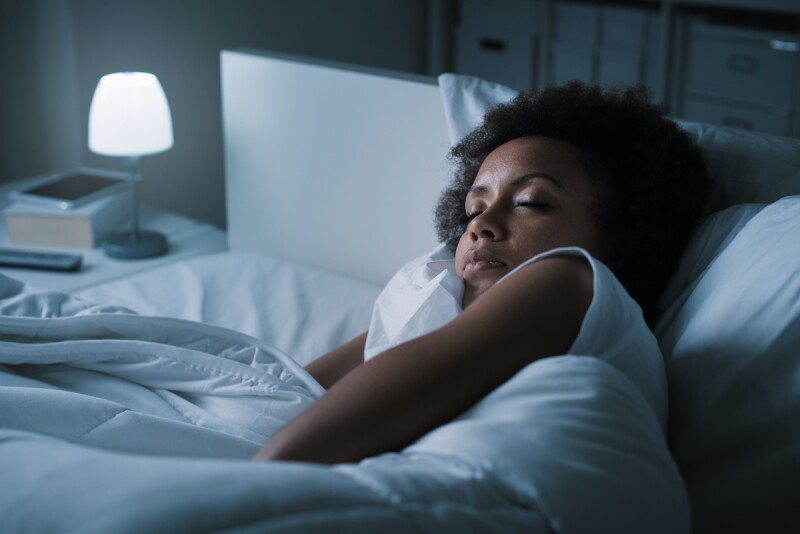Sleep plays a crucial role in maintaining overall health, yet many of us find ourselves wide awake at night, struggling to drift off. If you’re tired of tossing and turning and want to avoid reaching for sleeping pills, you’re not alone. The good news? There are plenty of natural and effective ways to relax before bed and enhance your sleep quality. Let’s dive into actionable strategies to help you achieve a peaceful night’s rest.
Why Sleep Matters More Than You Think

Sleep isn’t just a way to recharge; it’s a cornerstone of physical, emotional, and mental health. When you sleep, your body undergoes vital repair processes, your brain consolidates memories, and your mood stabilizes.
Skipping out on sleep doesn’t just leave you feeling groggy—it can lead to weakened immunity, weight gain, and even serious health problems like heart disease or diabetes. Understanding how essential sleep is makes prioritizing it a no-brainer. Thankfully, you don’t need medication to get quality rest. With a few mindful changes, you can reclaim your nights naturally.
Identifying What’s Keeping You Awake
Before tackling your sleep troubles, it’s essential to figure out what’s causing them. Stress and anxiety are common culprits, but they’re not the only ones. Perhaps you’ve had an extra cup of coffee late in the day, or maybe you’ve developed a habit of scrolling through your phone before bed.
Environmental factors also play a role. Noise, bright lights, or an uncomfortable mattress can disrupt your sleep cycle. Pinpointing these barriers is the first step toward better rest. Once you know what’s keeping you awake, you can address the root causes effectively.
Natural Relaxation Techniques to Calm Your Mind and Body
Relaxation is the gateway to better sleep. Incorporating these simple yet powerful techniques can help your body and mind wind down:
- Deep Breathing Exercises: Slow, intentional breathing helps calm your nervous system. Try inhaling for four seconds, holding for four seconds, and exhaling for four seconds.
- Progressive Muscle Relaxation: Start by tensing and then relaxing your muscles, working your way from your toes to your head. This method signals your body that it’s time to rest.
- Guided Imagery: Close your eyes and visualize a peaceful place, like a serene beach or a cozy forest cabin. Use your senses to immerse yourself in the scene, letting your thoughts drift away.
These techniques don’t just relax you—they also prepare your mind for a restful night.
Transform Your Bedroom Into a Sleep Sanctuary
Your bedroom should be a haven for sleep. Small changes can make a big difference in creating an environment that promotes relaxation:
- Keep It Dark and Cool: Darkness helps your body produce melatonin, the sleep hormone. Use blackout curtains and maintain a comfortable room temperature.
- Minimize Noise: If you’re a light sleeper, consider using a white noise machine or earplugs to block out disturbances.
- Ban Electronics: The blue light from phones, TVs, and tablets can trick your brain into staying awake. Keep your bedroom a screen-free zone.
Investing in comfortable bedding and a supportive mattress is also key. Think of your bedroom as a peaceful retreat where relaxation comes naturally.
Establish a Consistent Bedtime Routine

Your body thrives on routine, and a consistent bedtime schedule helps regulate your internal clock. Here are some ideas to create a wind-down ritual:
- Take a warm bath to soothe your muscles and signal bedtime.
- Read a light book or listen to calming music.
- Write in a journal to clear your mind of lingering thoughts.
The most important thing? Stick to the same sleep and wake times every day, even on weekends. Over time, this consistency trains your body to fall asleep more easily.
The Role of Diet and Exercise in Sleep Quality
What you do during the day directly affects how well you sleep at night. Here’s what to focus on:
- Exercise Regularly: Physical activity reduces stress and promotes better sleep, but avoid vigorous workouts close to bedtime—they can leave you feeling too energized.
- Mind Your Diet: Steer clear of caffeine, alcohol, and heavy meals in the evening. Instead, opt for sleep-friendly snacks like bananas, almonds, or yogurt.
Certain nutrients, like magnesium and tryptophan, are known to promote relaxation. Incorporating these into your diet can naturally support better sleep.
The Power of Mindfulness and Meditation

Do you find your thoughts racing when you lie down? That’s where mindfulness and meditation can help. These practices calm your mind and anchor you in the present moment.
A simple meditation technique involves focusing on your breath and gently redirecting your attention whenever your mind wanders. Just five to ten minutes of mindfulness before bed can significantly improve your sleep quality.
How Technology Can Sabotage Your Sleep
Let’s face it—many of us are glued to our screens, even in bed. But did you know that the blue light emitted by phones and tablets suppresses melatonin production, making it harder to fall asleep?
Here’s how to break free:
- Set a “tech curfew” and power down your devices at least an hour before bedtime.
- Use blue-light-blocking glasses or apps if you can’t avoid screen time.
- Replace late-night scrolling with activities like reading, journaling, or meditating.
By reducing screen time, you allow your brain to wind down naturally.
Embrace Aromatherapy for a Relaxing Bedtime Atmosphere
Scents have a profound impact on mood, and certain essential oils are known for their calming properties. Lavender, chamomile, and sandalwood are especially effective in promoting relaxation.
Use a diffuser to fill your room with soothing aromas, add a few drops of essential oil to your bath, or apply diluted oils to your wrists. Aromatherapy is an easy, enjoyable way to create a calming sleep environment.
Try Herbal Teas and Natural Supplements

Sipping on a warm herbal tea can signal to your body that it’s time to unwind. Chamomile, valerian root, and passionflower teas are excellent choices for promoting relaxation.
Natural supplements like melatonin or magnesium can also support better sleep. However, consult a healthcare provider before adding any new supplements to your routine.
When to Seek Professional Help
If your sleep struggles persist despite trying these strategies, it might be time to consult a professional. Chronic sleep problems could indicate underlying issues like insomnia or sleep apnea. A healthcare provider or sleep specialist can provide personalized solutions tailored to your needs.
Conclusion: Restful Nights Are Within Your Reach
Falling asleep naturally and waking up refreshed is entirely possible with the right approach. By making small, consistent changes to your routine, environment, and habits, you can create the perfect conditions for restorative sleep.
Remember, it’s all about finding what works best for you. Start by implementing one or two of the strategies above, and build from there. Sleep isn’t just a necessity—it’s a gift to yourself. So, take the first step toward better rest tonight, and enjoy the benefits of a healthier, more energized you. Sweet dreams!


